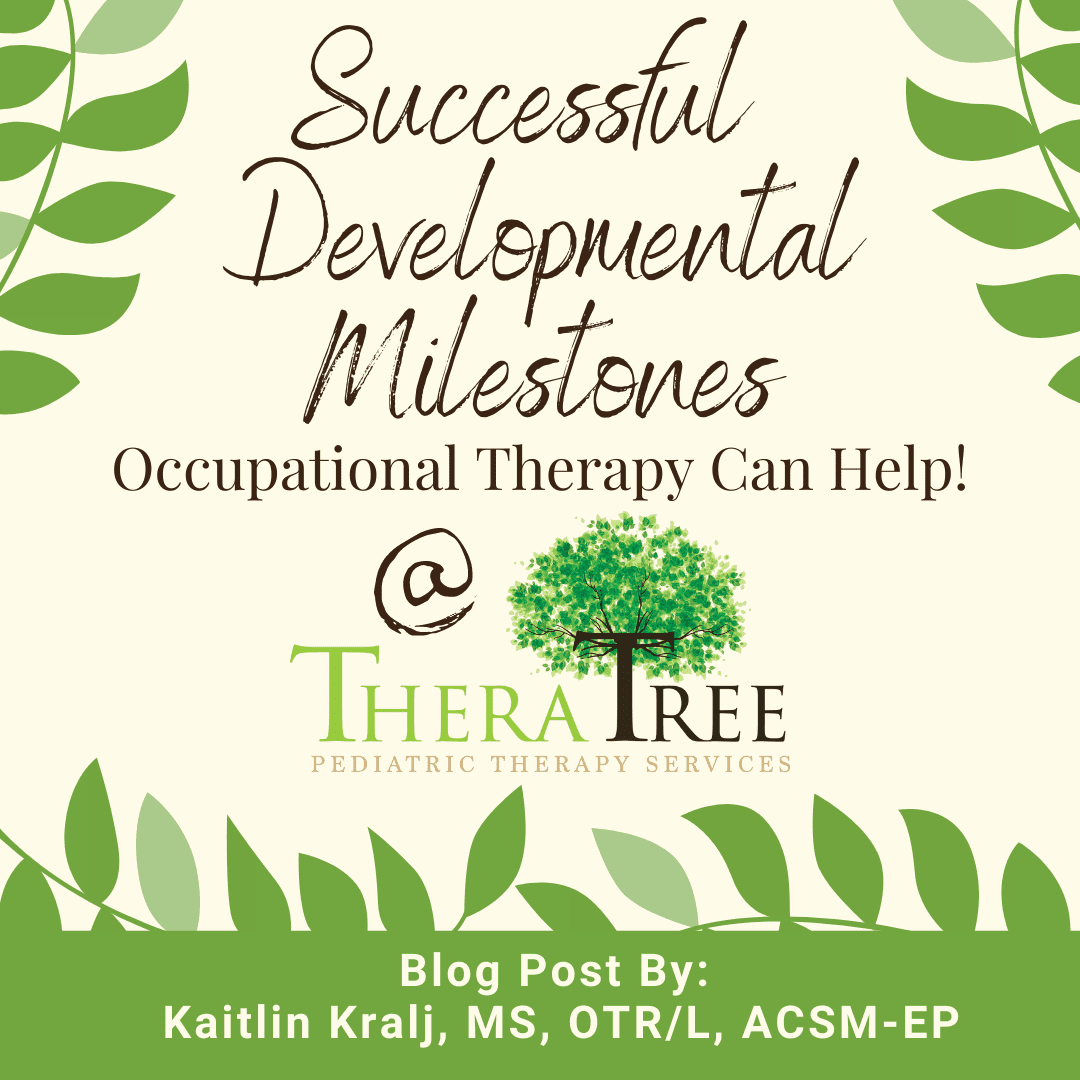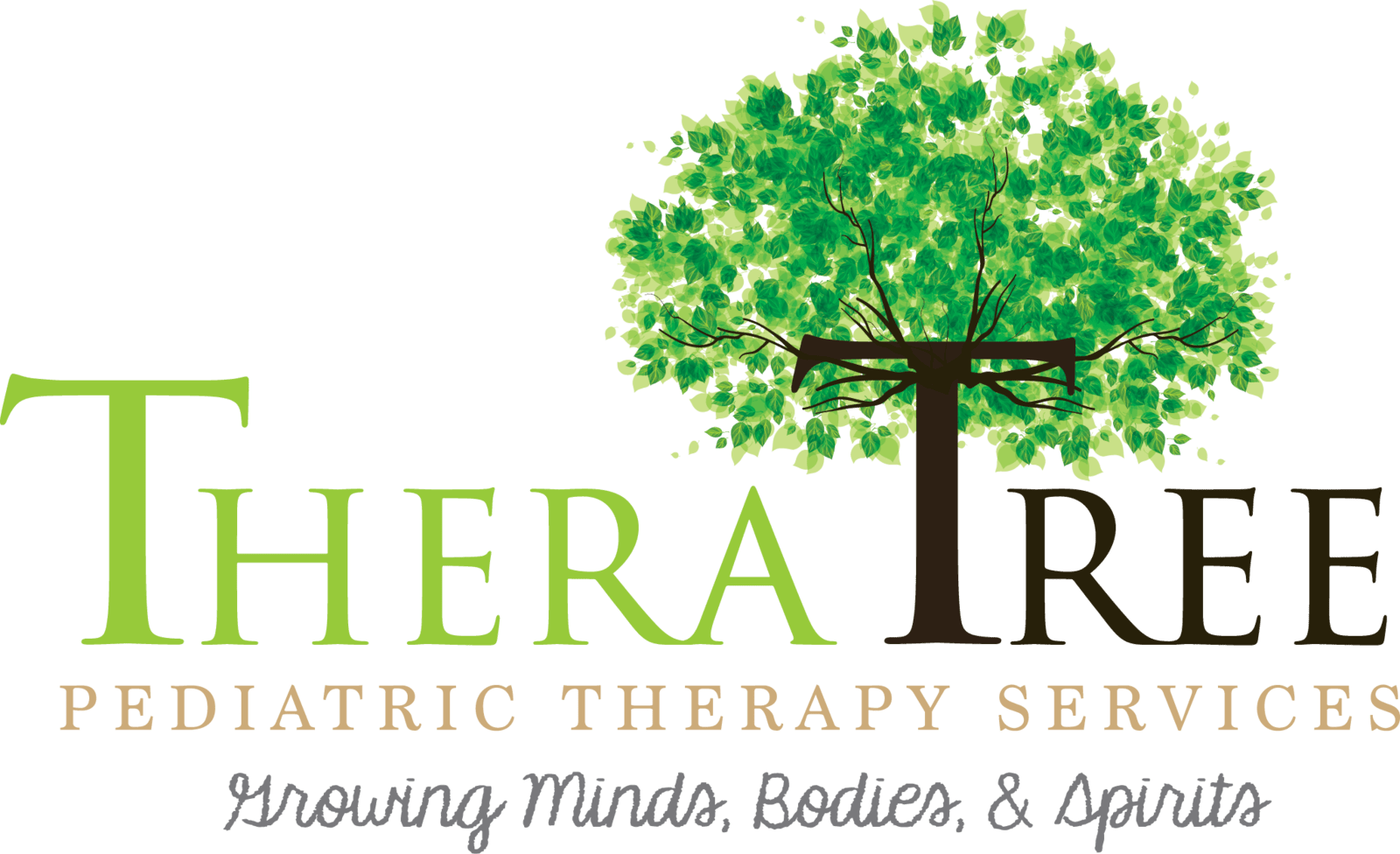
By: Kaitlin Kralj, MS, OTR/L, ACSM-EP
Children develop many important life skills during the first 5 years of life. These skills are commonly referred to as “developmental milestones.”
Skills such as rolling over, smiling for the first time, babbling, waving goodbye, pointing, and taking first steps are examples of just a few of these developmental milestones.
Even though children will develop at their own pace, most kids will reach these developmental milestones at around the same age. When a child is consistently reaching the developmental milestones at the normative age, it can be a good indicator that the child is developing as expected.
Performance Areas:
Developmental milestones include several performance areas, such as:
Fine Motor Skills
- Small movements that are made with the fingers, wrist, toes, lips, and tongue
- Needed for eating, drawing, dressing self, writing, playing, etc.
Gross Motor Skills
Cognition
- Thinking, learning, reasoning, remembering and problem solving
Social and Emotional Skills
Daily Living Activities
- Personal hygiene, eating, dressing, toileting
Communication
- Using body language, gestures, and speech
Common Developmental Milestones:
The cause of developmental delay is not always known. Some common factors include heredity, pregnancy complications, and premature birth.
Signs and symptoms of developmental delay will often vary. While signs can sometimes be recognized in infancy, there are also instances where the delay is not noticeable until the child is in school.
Reaching milestones earlier than expected means that a child may be advanced in comparison to peers of the same age. When a child is not reaching milestones during the expected time frame, or if they are reaching milestones later than their peers, their development may be termed as ‘“delayed.” A developmental delay is more than being “a little behind” their peers. Children that are facing challenges with reaching developmental milestones may require extra support to help them reach their full potential.
Occupational Therapy Can Help
Occupational therapy practitioners work with children of all ages throughout the rehabilitative process. After collaborating with caregivers to identify the child’s needs and any potential barriers that may be impacting functional performance, the intervention process begins. Occupational therapy practitioners possess the skill and knowledge required to provide skilled intervention, parent education, and make equipment recommendations as needed to help your child’s development. Occupational therapists have skilled training in helping your child develop motor skills, self-help skills, problem solving skills, social interactions skills, and play skills.
An occupational therapy practitioner will teach skills and/or strategies to help children and their families in all aspects of their daily lives. This process may include adaptations of activities, materials, and even environmental conditions so that children are able to participate in a variety of settings (including schools, homes, sporting events, community programs, etc).
Early identification of developmental delay is key!
It is important to remember that all children are different, and each child will develop these skill sets at their own pace. However, as a parent, you know your child best! If your child is not meeting the milestones expected for his or her age - Don’t wait! The earlier that a child’s developmental delay is identified and supports are put into place, the better the outcome will be for the child.
If you are concerned about your child’s development, speak with your physician and check out our developmental screening tool here:

